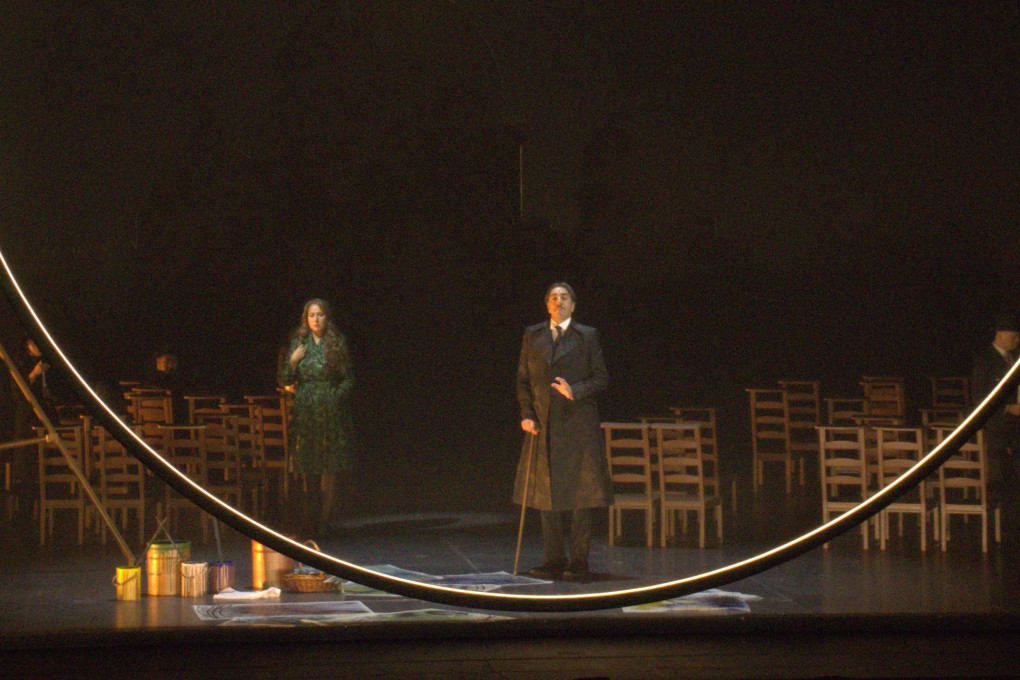Review | In Opera Hong Kong’s new Tosca, Claudio Sgura steals the show as Scarpia, the staging is clever and Oksana Dyka strikes right balance in title role
- The staging is ingenious in this new production of Puccini’s opera Tosca, and soprano Oksana Dyka, in the title role, sings beautifully and with feeling
- However, she lacks chemistry with Roberto Aronica, playing her lover, Cavaradossi. Fortunately, Claudio Sgura saves the day as the evil Scarpia

By the time Giacomo Puccini’s opera Tosca was premiered in 1900, approaches to singing in Europe were varied.
The old Italian operatic style of bel canto had had a mini resurgence, which contrasted with the Wagnerian sprechgesang. The verismo (realist) style of Puccini and his contemporaries, which offered greater fluidity, accessible characters, and great vocal strength given the frequently dense orchestral scores, further contributed to a diverging vocal landscape.
Opera Hong Kong’s new production of Tosca was made real by Oksana Dyka (alternating in the title role with Anna Nechaeva), who exuded both tenderness and torment with equal veracity, and without ever overdoing the verismo vibrato. The orchestra never intruded upon her space, allowing a nuance of tone to express the necessary complexities of her character.
After a crazed scene in which the voluptuary sadist Baron Scarpia attacks the diva, Tosca must then sing the famous “Vissi d’arte, vissi d’amore” (“I lived for my art, I lived for love”) with a sense of exhaustion. With a natural purity in her upper range, here Dyka was able to elevate her craft to express a fine balance between bewilderment and pain.

The love of which she sings is for Mario Cavaradossi, played on opening night by the tenor Roberto Aronica (alternating with Rame Lahaj).